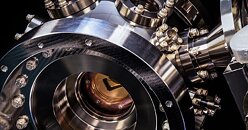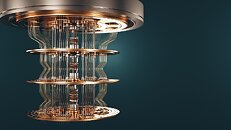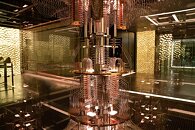
Sapphire Launches NITRO+ Radeon RX 9070 Model, a Month+ After Flagship XT Variant
Sapphire introduced two brand-new NITRO+ models prior to the official launch of AMD's RDNA 4 graphics card generation. The manufacturer rolled out its flagship Radeon RX 9070 XT card on day one—March 6—but the "lesser" NITRO+ sibling was absent at retail. Late last week, ITHome revealed that Sapphire had finally got round to globally releasing their NITRO+ Radeon RX 9070 16 GB SKU. At the time of writing, Overclockers UK seems to have cards in stock—priced at £629.99 (including VAT). Unsurprisingly, the freshly launched NITRO+ Radeon RX 9070 model utilizes the exact same shroud and backplate design that is present on Sapphire's range-topper.
The latest entry retains all of the more expensive unit's mod cons—including a Quick Connect MagniPlate feature, STEALTH hidden power cable, 12V-2x6 (H++) external power connector, Tri-X cooling technology, optimized composite heatpipes, and Honeywell PTM7950 TIM. Major differences are disclosed in Sapphire's "engine clock" specs: "boost clock up to 2700 MHz" and "game clock up to 2210 MHz." The Hong Kong-based company has not officially commented on circumstances that led to the delay of its NITRO+ Radeon RX 9070 graphics card. VideoCardz has dismissed claims about this particular model being postponed due to rumors of a displacement by forthcoming Radeon RX 9070 GRE 12 GB options.
The latest entry retains all of the more expensive unit's mod cons—including a Quick Connect MagniPlate feature, STEALTH hidden power cable, 12V-2x6 (H++) external power connector, Tri-X cooling technology, optimized composite heatpipes, and Honeywell PTM7950 TIM. Major differences are disclosed in Sapphire's "engine clock" specs: "boost clock up to 2700 MHz" and "game clock up to 2210 MHz." The Hong Kong-based company has not officially commented on circumstances that led to the delay of its NITRO+ Radeon RX 9070 graphics card. VideoCardz has dismissed claims about this particular model being postponed due to rumors of a displacement by forthcoming Radeon RX 9070 GRE 12 GB options.




















